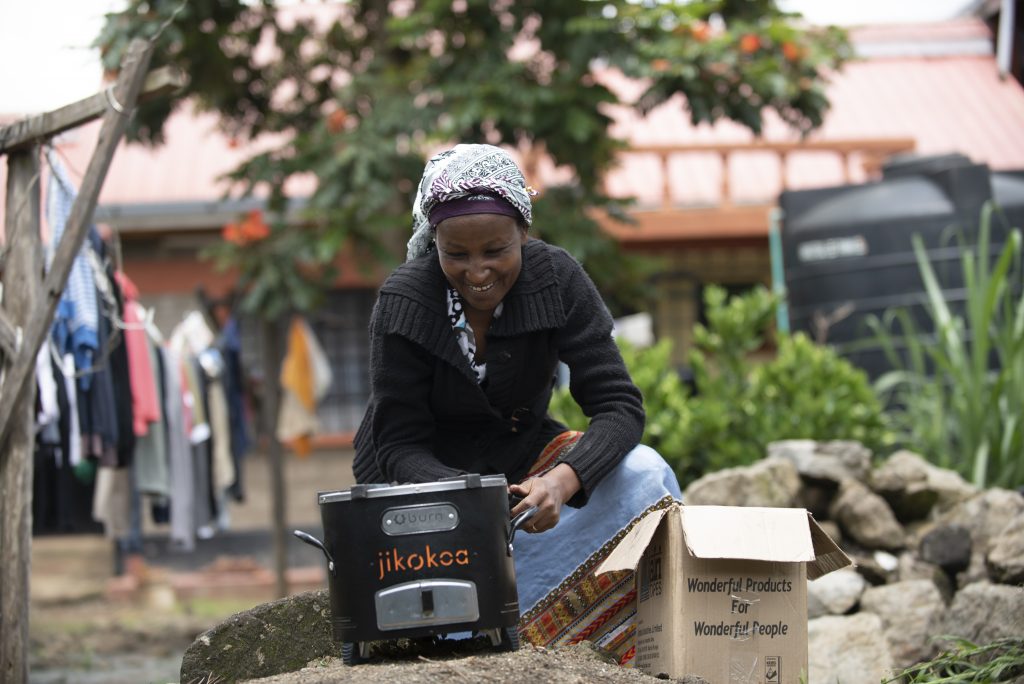Context
Furthermore, burning more biomass than is essential produces even more greenhouse gas emissions, contributing to climate change. Not only are these emissions bad for the planet, they’re also detrimental to the health of the people nearby, producing air pollution within the home that compromises respiratory health.
In Kenya, 9 million people rely on biomass for cooking. Distributing cleaner cookstoves can bring lots of benefits to both people and the environment. By reducing the amount of wood and charcoal that is burned by using these more efficient stoves, the volume of greenhouse gas emissions produced is reduced, and also less time and energy needs to be spent collecting this fuel – a job which often falls to women and children to carry out.
Project
Over the lifetime of this project, over 380,000 cookstoves will be distributed, avoiding 4.3 million tonnes of CO2 emissions, and reducing demand for wood fuel by 2.4 million tonnes. The manufacture and distribution of the stoves all takes place locally in a solar-powered facility, which provides over a thousand jobs for local people.
A study by professors at the University of California, Berkeley and the University of Chicago has shown that this cookstove distribution project saves an average of 54 minutes of cooking per day, and produces a significant improvement in self-reported health outcomes. The stoves are also incredibly easy to use, and require no additional learning or behaviour change – which sometimes causes challenges for similar kinds of projects.
Verification

Climate solution
Improved clean cookstoves
Improved clean cookstoves can address the pollution from burning wood or biomass in traditional stoves. Using various technologies, they reduce emissions and protect human health.
Around the world, 3 billion people cook over open fires or on rudimentary stoves. As these burn, often inside homes or in areas with limited ventilation, they release plumes of smoke and soot liable for 4.3 million premature deaths each year. Traditional cooking practices also produce 2 to 5 percent of annual greenhouse gas emissions worldwide.
A wide range of “improved” cookstove technologies exists, with a wide range of impacts on emissions. Advanced biomass stoves are the most promising. By forcing gases and smoke from incomplete combustion back into the stove’s flame, some cut emissions by an incredible 95 percent.
